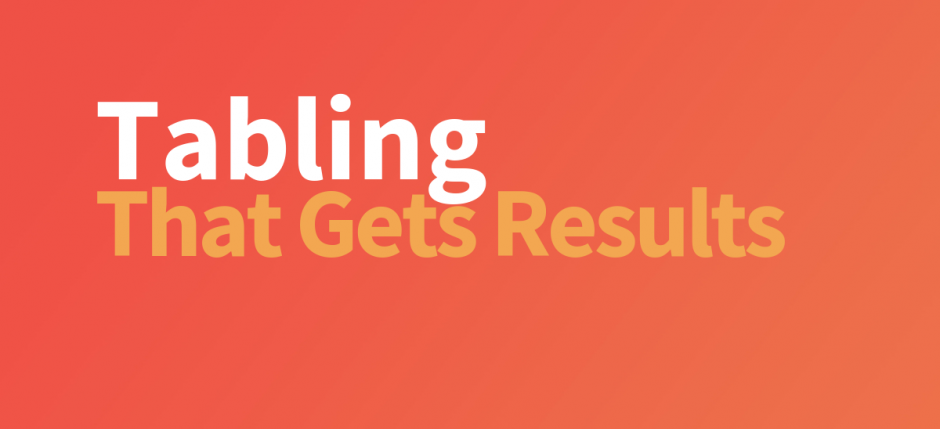
by Matt Mattson
So many fraternities and sororities use “tabling” as a marketing/recruitment/promotional tactic. It can be AWESOME when done right. But some tabling approaches are meh while others drive results.
This is meant to be the ultimate resource to do tabling right for fraternities and sororities!
First things first. Download and read this practical instructional resource on tabling, and then I’ll share some other resources, stories, a video, and some context.
Next, you should definitely read these other related posts if you want to become a master at tabling:
A Story of Ten Times The Tabling Results in Texas
Now, let me tell you a quick story (this happens to be about some great IFC fraternity men, but the lessons apply to any fraternity or sorority).
I was recently at Texas State University. In late August. It was like 100 degrees with 100% humidity in the blazing hot Texas sun. Still, three fraternities were all out on the quad, working hard, showing up. They had their tables set up under nicely branded tents. They had letters out front. They had everything color coordinated. They looked really sharp and professional. And they were behaving like gentlemen. I was really impressed. They were hustling. Handing out fliers with their recruitment event schedules, and there was a sign up sheet on each table. I stopped by each of them to ask about their results. Each of them reported to me that they added about 10-15 new names to their list that day. Good work, gentlemen.
Meanwhile, 6-8 IFC “Recruitment Guides” were out on the quad at the same time working to promote IFC recruitment and gather names and contact information. They were standing in pairs, at different spots around the quad, at no table (because they forgot to reserve one tbh). They’re using clip boards to conduct a super simple non-Greek market survey (that I had created in like 2011 and printed out for them the night before – here it is). By the end of about a 3 hour effort, they had collected 100 new names to be added to their community’s chapter builder accounts.
Same location. Same amout of time. Same Texas heat. 10 times the results!
Watch this video to see what they were doing. After watching the video, keep scrolling down and I’ll explain the lessons you’ll want to take away from this.
Lessons To Learn from This Story
Important Reminders
Q: What is the purpose of an information table?
A: The correct answer is … D, none of the above.
Of course we never sit behind the table. In fact, the first thing we do when we arrive is get rid of the chairs. You might give away some information and you might create some more awareness, however, this is not the “purpose” of tabling. The reason we table is the exact opposite of “giving our information away” … we do them to “get their names on our list.” Period!
The success of an information table is measurable. Every 30-60 minutes count up the number of names with phone numbers and email addresses that you’ve collected. Those are your results. Any other positive outcome is a bonus, not the purpose of your time.
Great tables yield 25-50 new leads per hour. If that’s not happening, you’re:
Have you ever wondered:
Answers to all those questions and more can be found in this free resource.
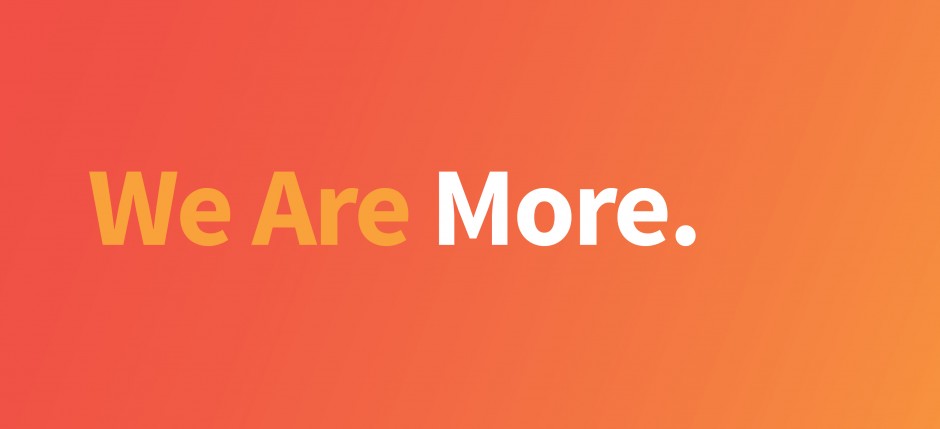
This is more than just a friendship club.
This sisterhood, brotherhood, siblinghood thing. This fraternity/sorority thing… it is a life-changing gift. It’s way more than a friendship club. Let me explain.
“We are more.”
That’s the best, most succinct, most all-encompassing, and – the more you let it sink in – the most powerful way I can describe what being a member of a fraternity or sorority is all about.
It seems almost cliche on first glance.
“We are more.”
It’s nothing on it’s surface. Just a collection of a few words housed in a sentence. It’s a humble little sentence that many onlookers would breeze right past, thinking nothing of it. The individual words seem really common, but when they come together they reveal the power of a collection of people who choose to live in such a way as to exceed expectations. We are more. It’s like the brevity of the sentence camouflages the potential that lies within. Three little words that carry weight. Three little words that are timeless. Three little words. We are more.
We make the choice to be more. Fraternity and sorority members are more involved. We are more charitable. We are more likely to raise our hand. We are more colorful and loud. We are more enthusiastic and confident. We try more, we achieve more, and we care more. We are more honorable, and more fun. We are MORE because we make the choice to be. We are more.
See this “Greek Life” thing is more than most understand it to be.
“A Daily Choice”
It’s not a club. It’s not a party. It’s a challenge and a promise. It’s a million moments of truth. It’s old and it’s new. It’s a gift entrusted to me to cherish and then give away. It’s a shared mission. It’s a lifelong expectation. it’s a daily call to action. It’s an ancient tradition. It’s a future of opportunity. It’s a chance to matter. It’s a choice. A daily choice to be more.
That’s what fraternity has done for me. It has given me a chance to matter. It has given me brothers who love me, and who I love.
“A Lifelong Vow”
Oh, and I should explain one more thing. “Brothers” and “Sisters” and “siblings.” You might not understand us when we use these words. That’s o.k. Let me explain. Sisterhood, Brotherhood, and Siblinghood is far more than friendship; more than buddies or besties. Way more. It’s a shared cause. It’s a common purpose. It’s a commitment to helping each other live as our best self – every day. It’s trust. It’s a promise. It’s a lifelong vow to help me become all that I’m destined to be.
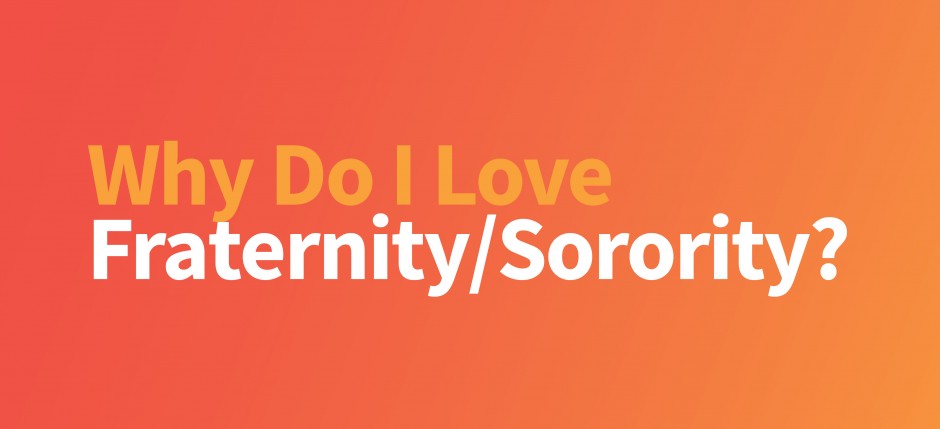
by Dr. Colleen Coffey-Melchiorre
Have you ever stopped to think about why you love fraternity and sorority life so much? Seriously, it is a profound question to consider. If you’re reading this blog right now, it is likely you’ve got a deep love for your chapter, community, and perhaps even the entire fraternity/sorority experience. Maybe it’s something you grew up knowing about, maybe you fell in love during college, or maybe it’s in your blood.
Right after college I became a traveling consultant for my sorority, Alpha Sigma Tau. I remember struggling as a consultant with the fact that I felt like I didn’t have a “real job” (see: hardest job I have ever had). My parents, while supportive, didn’t fully understand what I was doing. Questions about health care and employment longevity abounded. This was coupled with the fact that I have cousins on both sides who are literal rock stars. Think business owners, inventors, Olympic ski instructors, Wall Street investors, famous snow boarders, political influencers, and one who works for the Department of Education.
If one of my cousins was part of a fraternity or sorority, it certainly wasn’t their primary focus after college. We all have that one cousin who is kind of a dumpster fire, right? Not me. There’s not an underachiever among them. Without anyone in my family interested in this kind of passion, I felt a little lost when my chosen path of sorority ultimately turned into my career. Why in the world was I so passionate about this industry? Why am I still here almost 20 years later? As it turns out, it’s in my DNA.
On a cold Thanksgiving Eve in my first semester traveling for the sorority, my grandfather pulled me aside to talk. He was a man of few words and lost his wife when she was far too young. I never knew my father’s mother, but my Poppy shared that she, too, was a sorority woman and in 1941 was asked to live with another chapter of her organization to help get them established. She was one of the first “consultants” in the world of a sorority, and over 60 years later I would carry on her legacy. It gets better…
The chapter that she helped to start closed years later as so many chapters did between 1950-2000. This year, our company will proudly and boldly assist that very same chapter as they work to build a beautiful home for so many women.
In 1976, Hope Weeks Coffey joined the flame eternal far too soon and left a legacy of friendship forged by a flame that burned bright inside of her. That flame was so bright, in fact, that six decades after she joined a sorority I would join one and do the some of the very same things that she did.
I’m not super into history or philosophy, nor do I think we should use legacy as a means to rest on our laurels. Far too often, we let nepotism chart our course in our organizations. I will say though that I think my family legacy gives me some serious street cred, but most importantly it helps me understand and know where I came from.
We talk a good game about “what our founders” would do, have wanted, think about etc. The truth is, fraternity and sorority was invented for small(ish) groups of people with similar values to do life together. We don’t exist as drinking clubs that promote the chillest and most lit stories on insta. We are not comparison machines that make people feel like crap about themselves for not being “bigger”. We are not supposed to be places where social standing is everything and that can turn us into a whole lot of nothing.
Want to leave a legacy? Love each other like you have never loved anything before. Be the person who goes first, leans in, asks about real stuff, challenges the process, and gives love away like your founders intended. Do it so that it becomes so engrained in the story of you that it’s literally DNA you pass down.
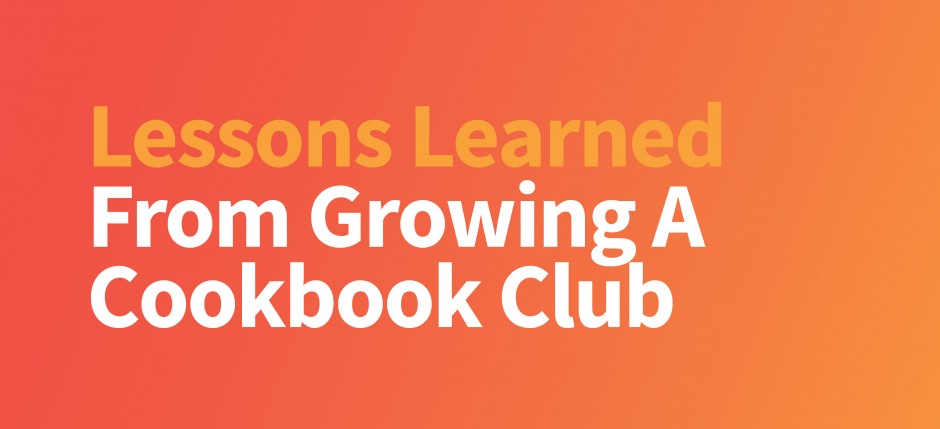
by Haley Cahill-Teubert
I dreamed of living in a large city as long as I can remember. From birth to 21, I lived in small towns and I fantasized about something bigger. So when I graduated college, I packed my boxes, loaded up my 2003 Honda and drove until I reached my destination: Nashville, Tennessee.
After living there an entire five seconds, I told myself I’d never live in a small town again. As it turns out, life had a bit of a different plan for me. Just short of three years in Music City, I moved back to my hometown in West Virginia so my husband and I could be close to family.
I can’t speak for everyone who moves back to their hometown, but I’ll tell you it’s been a rough transition for several reasons, but a large one revolves around friends, or lack thereof.
Sure, my family is here, but can we all appreciate that’s different? And the people I knew in high school are either in other parts of the country now or still here, but just… different people. We’ve changed. So even though I moved back home, in many ways it felt like a brand new place where I don’t know a soul. And let me be clear: That sucked. That was not a good feeling.
So one day, I was watching this cooking show and there was mention of a cookbook club. Have you ever heard of a cookbook club?
I hadn’t. It’s essentially a glorified potluck, where everyone picks a recipe from a specified book, prepares said recipe, and brings it to the event to enjoy with friends.
I was totally into that 1) because I love to eat, and 2) because I was gifted a ton of cool cookbooks as wedding gifts, so this would be a fun way to put them to work.
I call my sister and she’s on board. So, we invited the few people we did know and asked them to do the same. We set a date and a time and I was super pumped. Ahead of the cookbook club gathering, I scrubbed my house top to bottom. Lit every candle I could find and dug out the good plates. If all else failed, at least the house was clean.
People began showing up. Some I knew, most I didn’t. But it took seriously no time for it to turn into a party. It was going better than I imagined.
I sat at a table with some women I wanted to know better. One of the women turned to me and said: “This is just great. I love it. Where’d you get the idea?”
I shared with her the bit from the TV show… I told her I had a bunch of cookbooks… And then I paused for just a moment, trying to decide just how honest to be with this new friend of mine, and I said: “Well, also because I’m new to the area and I just don’t really have any friends. It’s been hard to meet people and I was hopeful this would be a good way to do that.”
There was this simultaneous audible agreement by everyone at the table… “Yes, it is hard to meet people.” I wasn’t alone and we all connected over that. The conversation that flowed after that was so, so good. We talked about vacations, significant others, jobs, cooking fiascos–anything and everything under the sun.
That first cookbook club gathering was in October of 2018, and we’ve been meeting once a month since then, with new faces joining us each time.
This is a story about me seeking human connection–about friendships. I wanted a place of belonging. I wanted purpose. Isn’t that what we seek in sorority? Friendships? A place of belonging? Purpose? So that’s what I created with this cookbook club, and there are some specific components that made cookbook club so successful that go hand in hand with how you prepare and execute recruitment.
First things, first. I scrubbed my house from top to bottom and dug out the good dinnerware. I wanted to be a good host. I wanted people to feel welcome there… so welcome that they wanted to keep coming back. Cleaning the house is a good way to do that, but an even better way I did that was by opening my house to total strangers, engaging with every person who walked in the door, introducing them to others, being kind and warm. This is generosity.
Most of the time, we associate generosity with money or gifts, but that’s not always what’s meant. We show generosity in the ways we treat people, the ways we engage with them, the ways we make them feel.
What are five ways you can be generous to PNMs during recruitment that don’t involve money or gifts?
The conversations at cookbook club were so much deeper than I thought they’d be. I expected to swap recipes, but we talked about relationships, cooking dilemmas, worst first dates, in-laws, jobs, vacations, hobbies…. None of those fun conversations would have happened without curiosity. The conversation may have started with: How did you and your husband meet? And then went to places like: And that’s when you decided to start a jewelry business? And then to: Wait a minute, you did what in Mexico?! The conversations were so soul-filling. The conversations were full of moments of: “Oh my gosh I can’t imagine going through that” and moments of loud, hysterical, deep belly laughs. None of these moments, these jokes, these stories would have happened without each of us being curious about the others.
Those are the kind of conversations and connections we crave, but we rarely get those in a recruitment. And it’s because we have a culture of conditioned curiosity. We only ask about the things we need to know about a potential new member like academic achievement and campus involvement. And after we ask, we’re ready to be bumped. Does that sound familiar?
I give you permission to be curious. But here’s a tip. Don’t scare PNMs with your curiosity. Asking them “what aisle in the grocery store they’d shop in for the rest of their lives” or “if they could be any flavor of ice cream what would it be” are not normal things to be curious about. Be normal.
What are five questions you wish you had been asked during recruitment that would have let your true self shine?
Right before the conversations really picked up, something important happened. Someone was curious and asked me why I started the club. I gave a super polite answer… I like to cook and I have cookbooks. But then I took a chance and told them I didn’t have many friends in the area. I was having difficulty meeting new friends and hoping this would be a good opportunity to find some. That was a vulnerable moment for me. No one wants to say out loud: I don’t have any friends.
But I said it. And it made all the difference because we connected over that. Had I not said that, I never would have known they felt the same way too. I never would have felt safe enough to share silly stories or exchange phone numbers at the end of the night. Taking advantage of the opportunity to be vulnerable and share what was really on my heart was a pivotal moment. Sometimes we think of vulnerability as being weak or crying, but I think vulnerability is simply feeling safe enough to let someone into your heart without fear of the outcome.
Now realistically, vulnerability takes time. Some people open right up, but others need to know you for a long time before they feel comfortable doing that. Vulnerability can move your conversations and relationships in really remarkable directions, but we need to appreciate everyone will approach that at a different time. To create an environment where that can happen though, I’d call back to the things I said about being generous and curious.
A fourth way we can create environments that allow relationships to develop and bloom is simply by being ourselves.
When I hosted that first cookbook club, I did things like make sure my house was spotless, create a cool playlist, and wear an outfit that made me happy and comfortable because I felt like that’s how I needed to put my best foot forward. But listen: I live in a 1,200 square foot townhouse. I made my home look nice, but I didn’t present it as something it wasn’t. I dug out my good dinnerware, yes, but I didn’t go out and buy new china I knew I couldn’t afford. And I didn’t tell stories to impress these people–I told stories that were true. I was myself. I was presenting the best version of myself, but I was myself. And to my knowledge, no one has been disappointed about that!
We’ve got to be ourselves in recruitment. We can’t sell our chapters as something we’re not. We can’t tell PNMs we value academics if we have the lowest GPA on campus. We can’t talk about how amazing it is to live in the chapter house if no one actually wants to live there. We can’t spend an entire day of work week talking about spray tans, eyelash extensions and appropriate nail colors if our vision of “best self” isn’t shared by everyone else in the chapter. We’ve got to be honest. We’ve got to be authentic.
If I can meet friends, develop connections, and grow a dang cookbook club in my teeny tiny town by being generous, curious, vulnerable and authentic with the people who attend, you absolutely can create connections during recruitment and grow your organization in the same way.
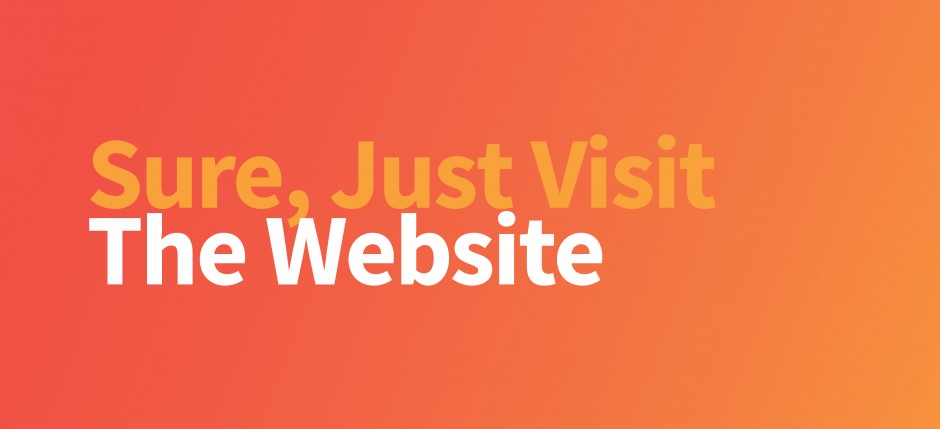
by Hailey M. Mangrum
Let’s play a scenario.
Person 1: Hi, welcome to Starbucks, what can we brew fresh for you? (or whatever they actually say)
Person 2: Ahh, yes. I see you have this drink called Latte XYZ – what’s in it? Is it good?
Person 1: For more information on all of our drinks, please visit our website. We recommend you doing your research before deciding what to order.
Pause. Wait..what?! How?! Imagine waiting in line and finally getting to the counter just for an employee to tell you to visit the website to learn more about Latte XYZ. It feels strange. It feels unfriendly. Honestly, it feels rude AF.
This scenario is way too familiar to the ways in which we, sometimes, engage in conversations with people interested in joining our organizations. The customer in this scenario had a question about the experience and/or something the experience could offer. The customer was a potential member of our organization. Now don’t get me wrong – I do think we should still encourage research so people can make an informed decision. We must realize our conversation with them is apart of their research.
We have been bamboozled to think discretion means directing people to the website and that’s not true at all. In fact, you can still practice discretion by engaging in a conversation with an individual. Discretion is just another way of figuratively moving in silence. So have the conversation, friends – but let’s be more intentional.
Here are a few questions to help guide a conversation with the next person to express interest:
What are you passionate about? Really, if you could positively impact something, what would it be?
What does leadership mean to you?
What are you involved in?
How are you connected on campus?
What are you looking forward to accomplishing before you graduate?
Not only are we members of our esteemed organizations. We are ambassadors of our mission, pillars of our purpose, and archives in the making. We have a responsibility to share our organization with the world so people know just how significant, relevant, and amazing we are.
Let’s play a scenario, again.
Person 1: Hi, welcome to Starbucks, what can we brew fresh for you?
Person 2: Ahh, yes. I see you have this drink called Latte XYZ – what’s in it? Is it good?
Person 1: We’re glad you asked. The Latte XYZ comes from our signature coffee. I actually enjoy it because it’s refreshing and gives me energy to start my day. What do you usually order when you visit?
And a conversation begins. It’s not giving them all the keys. It’s being courteous, gracious, and approachable. We are organizations rooted in relationships and culture. We are the bridges between our communities and enacting positive change. We are agents of leadership. And, most importantly, we are the chosen few to carry out the legacy of those that came before us. So next time someone asks you about your organization, share what you love most about your membership experience before telling them about the website.
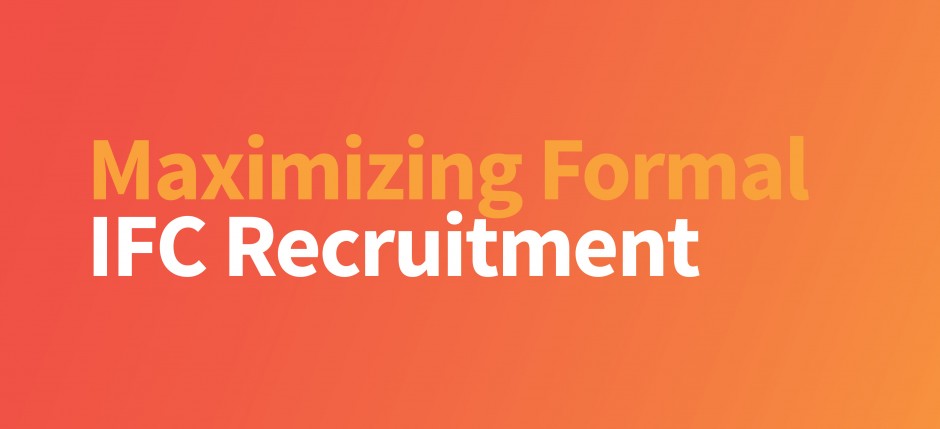
by Matt Farrell
Have you found yourself asking: is formal fraternity recruitment the answer, or the problem?
You’re not alone if your interfraternity council is asking this. At Phired Up, we see countless campuses debating this question across our national travels. It’s easy to poke holes in both sides of the question.
This makes the Washington State IFC so interesting. Like many other large state schools, they see hundreds of potential new members express interest in fraternity before arriving, and chapters that want access to all of them. It’s a logistical nightmare that can take the fun out of recruitment no matter what the structure looks like.
So from an outsider’s’ perspective, WSU has moved past the above question to a more advanced one: “How can we make the recruitment experience as enjoyable and efficient as possible, so every PNM benefits?”
The result of this question is the creation of one of the most advanced recruitment counselor programs we’ve seen for any IFC, known locally as the Rho Chi experience. Phired Up is fortunate to facilitate the multi-day training, but the IFC’s vision to build it came first.
So, what is the Rho Chi experience and what makes it special? We talked to a couple students while preparing for this year’s training so you can hear straight from the source.
An Investment in First Impressions
“So many guys sign up for recruitment having no idea what fraternity really is,” says Julian Naranjo, IFC Executive VP and Sigma Phi Epsilon brother who coordinates the program. “They may never find out if we don’t introduce it properly. We need to showcase the leadership and mentorship opportunities available to them right from the beginning.”
“We want to ensure PNMs don’t fall through the cracks,” adds IFC President and Tau Kappa Epsilon brother Austin Proteau. “Formal recruitment is not for everyone and we don’t want to hurt people’s chances of joining if they don’t perform well with a large group. Smaller groups lead by competent Rho Chis help address this.”
Seasoned Rho Chi and SigEp Andrew Thomas describes first impressions even more bluntly. “Many people are hell-bent on the idea that the guys who sign up for formal recruitment base their decision off poor stereotypes seen in movies. While I think they have a point, there’s plenty of men that don’t adhere to the stereotype. Both types are going to find a way in front of chapters regardless, so you can’t blame formal recruitment for that. A positive Rho Chi experience gives us a chance to fuel the fire the right way.”
So how does the Rho Chi Experience get built?
Investing in Training, Not Just Talent
“This isn’t a position we recruit purely off natural ability,” says Proteau. “We don’t want Rho Chis teaching PNMs to state their values to chapters, since this is awkward in conversation. We rely on training them to build out their stories instead of saying their values. This is an area we spent most of our time with Phired Up on last year. Now we’re ready to spend more of that time on situationals. Tangible skills. How to do the job, challenges, things you run into that you need to prepare for.”
Naranjo adds that many PNMs definition of a great Rho Chi is “actually terrible” once they get an advanced perspective.
“It’s not just about being a cool guy which maybe is all PNMs are looking for at the time. We want men who are easy to get along with, but also people who PNMs feel comfortable around and who are okay with being brutally honest. If PNMs don’t hear it from their Rho Chi, they may not hear it straight from anyone else.”
Phired Up and the IFC are preparing a further developed training on handling tough questions for this fall, to ensure they are being answered in ways that are both 100% true and 100% validating. We’ve noticed that many of PNMs questions are only answered through one of the above, at best.
Creating Points of Pride
If you were to spend a couple days around this program as we have, it would be evident that it goes far beyond a mere recruitment counselor checklist. Rho Chis all get visors that further symbolize their role as a coach instead of a babysitter. The men have become friends across chapters and see it as a way to develop future IFC leaders (Naranjo was a Rho Chi last year).
“The whole point of being a Rho Chi is to be both a leadership figure and friend to PNMs. If you’re good at both, you’ll have a significant impact on them and how they perceive Greek Life based on their relationship with you. I think it will compound over the next few years and slowly eradicate lots of negative stereotypes for us,” adds Thomas. “We know that guys will follow and repeat the behavior they see, because for a lot of them the Rho Chis are the first fraternity men they knowingly meet.”
Naranjo’s words bring home the full mission of Rho Chis.
“This is about creating a platform for very young individuals at our university. Before some of them even take a class, we want to give them leaders and someone they can look up to.”
Contact farrell@phiredup.com to learn more about building a similar program on your campus.